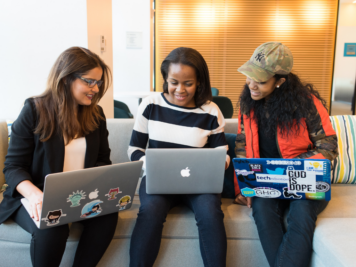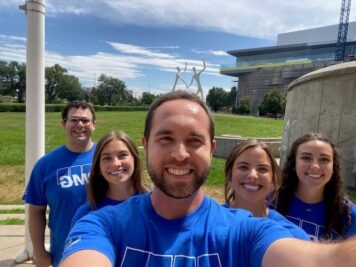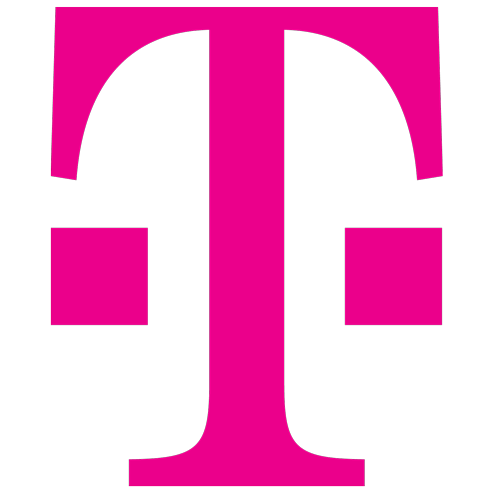What does it mean to be a company existing on the cutting edge of advanced and emerging technologies? Does it mean working on projects that have the potential to change the lives of everyday humans? Does it mean hiring some of the top engineering talent in the game? Or, could it mean developing solutions that shift the bounds of business? For T-Mobile, it means all of the above.
Although best known for its role in mobile communications, T-Mobile is a company that is making tremendous strides to cement its place in the world of advanced and emerging technologies (A&ET). Using the incredible powers of their 5G network, T-Mobile is beginning to enable new services and ecosystems that go far beyond the smartphone. Some extend into the areas of virtual reality, drone technology, and artificial intelligence.
To get a better understanding of some of the specific projects that are being conducted in these areas, and to offer prospective employees an inside look at what they could be working on in T-Mobile’s A&ET sector, we sat down with four individuals who participated in the U of Magenta Internship Program.
Virtual Reality
Two of the interns we spoke with, Laura Soto Onate and Justin Tang, worked together on a couple of projects – one of which was to build a “5G alternative reality experience” prototype. However, this is no ordinary virtual reality experience they are working on.
What this duo and their team are attempting to create is a VR experience that captures livestreams in real-time by pairing a VR device with a motion simulator. Currently, all the market-facing VR products only use recorded audio/video, whether it’s in a video game or other watchable content. This new technology would capture a live feed.
Laura Soto Onate, who got the internship through WayUp, explains that they “paired virtual reality with a livestream using an algorithm to synch the IMU with streaming content displayed in VR in near real-time.” All of this was done by “using the low latency features made possible on T-Mobile 5G.” By attaching cameras to a drone or onto a person/player, the concept could bring virtual reality to platforms such as live sports, concerts, or even extreme environments like the top of an erupting volcano.

Whether it’s for research, entertainment, or business initiatives, there is no doubt that bringing this “5G alternative reality experience” to life would create incredible opportunities across multiple industries.
Drone Simulation
At WayUp, we’ve seen internships of every variety and pretty much none of them grant you the opportunity to work with drones. But the T-Mobile U of Magenta program isn’t your typical internship. No one knows that better than Udita Bhattacherjee, a recent graduate from North Carolina State and a participant in the Magenta program this past summer.
Udita’s project had her working on “5G standalone protocol verification with Open Air Interface,” which is essentially a small, highly adaptable, software-based implementation used to test new features of a technology. Some of this testing that Udita had to conduct, to ensure her protocols were correct, occurred at the Aerial Experimentation and Research Platform for Advanced Wireless (AERPAW) testbed located in Raleigh, North Carolina.
One of the protocols Udita recalls testing was a radio-frequency sensor that can target the location of a drone. Udita spoke with excitement about getting the chance to drive a rover when testing whether the sensor could track the drone, and how thrilling it was to be on-site with her team actually seeing their work come to life.

Artificial Intelligence
In addition to drone simulations and immersive virtual reality experiences, the T-Mobile U of Magenta program is also involved in machine learning and artificial intelligence (AI) experiments. Shubh Mukherjee, a Ph.D. student at the University of Missouri, interned at T-Mobile and worked with AI use cases for something called Radio Access Network Automation. The objective of Shubh’s work was to fully automate the overall fault management process of a network to reduce human intervention and enhance customer experience, among other things.
Shubh described the application he was working on as having three main parts. The first is to identify the issue or stimuli that caused the fault, the second is to reason or identify why that issue occurred, and finally, the application is meant to solve the issue and ensure it never happens again – all through machine learning.
By automating these fault detection processes, T-Mobile hopes to reduce the manpower used on solving issues while simultaneously preventing any loss in service that might influence a customer’s experience. For Shubh, working on such an innovative technology meant exploring areas yet to be charted by modern science. But it also meant gaining experience that he could use to help him complete his Ph.D.

What Will You Do?
Virtual reality, drone technology, and artificial intelligence are just three of the realms in which T-Mobile’s Advanced & Emerging Technologies teams operate. Given full autonomy to research and choose their own project, U of Magenta interns at T-Mobile have free reign to pursue any subject they are passionate about. The only question that is left to answer is what will you do if given the opportunity? Check out the open roles at T-Mobile today.






